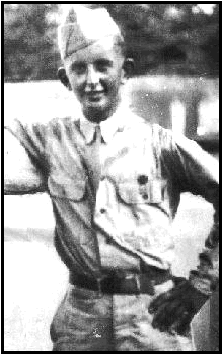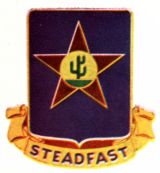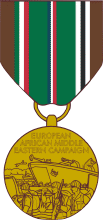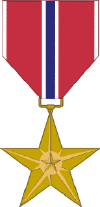|

|
DRAFTED INTO SERVICE FROM CAMBRIDGE, MA ON
3/18/44. ENTERED BASIC TRAINING AT CAMP BLANDING, FLORIDA. TRANSFERRED
TO CAMP HOWZE IN AUGUST 1944 AND ASSIGNED TO 103D INFANTRY DIVISION,
409TH REGIMENT, D COMPANY, HEAVY WEAPONS, 1ST PLATOON MACHINE GUNNERS.
ARRIVED IN MARSEILLE, FRANCE IN OCTOBER 1944. FOUGHT WITH 7TH ARMY IN
SOUTHERN FRANCE AND VOSGES MOUNTAINS AS AMMO BEARER. CAPTURED AT
SELESTAT ON DECEMBER 2, 1944 AT THE AGE OF 19. SURVIVED POW CAMP WHERE
25 OF 200 DIED FROM STARVATION. LIBERATED IN MAY 1945. DISCHARGED IN
DECEMBER 1945. RECEIVED , ,
CIB, , AND MEDALS |
- POW
- After
being captured on December 2nd, 1944 in Selestat, we were
herded across the
- Rhine
and forced to dig trench emplacements for the defense of a German
position.
- This,
of course, was contrary to the Geneva Convention, but we were in no
position to
- protest.
Eventually, we were placed in box cars and made a long trip to a POW
camp in
- Limburg,
Germany (Stalag XIIA). Our diet consisted of what we called grass
soup. The
- rumor
was that when we got to a permanent camp, the diet would improve. That
never
- happened.
-
- Our
next train ride placed us in a camp near Muhlberg (Stalag IV-B) for
Christmas.
- On
January 2, 1945, I arrived at my new home. We arrived at Kamnitz,
Czechoslovakia
- in
the Sudeten Mountains. (After the Germans were defeated, the Czech’s
changed the
- name
from Kamnitz to Ceska Kamenice) By this time, there was only Don
McGregor left
- with
me from my outfit. They’d managed to scatter us out pretty good. At
this location,
- we
were stripped of our olive drab clothing. Our winter protective
clothing was replaced
- with
clothing that was inadequate, to say the least, for winters in the
mountains. Many
- of
us suffered from frostbite.
-
- We
were placed in work crews and were forced to dig tunnels in the
mountainside.
- They
were attempting to construct an underground aircraft factory that
would be
- impervious
to allied bombing. Six days a week (Sundays off), we were marched to
our
- work
site several miles away. We worked 8 to 10 hours and then marched back
to the
- camp,
arriving about dark. We never received lunch and received only a piece
of bread
- and
some kohlrabi (a sort of cabbage) soup for our efforts.
-
- Finally,
on May 8th, our German guards opened the camp gates and
told us we were
- free
to go. There were no American liberators in site. We were told that we
were on our
- own
to get back to our lines, or we could wait and be liberated by the
Russians.
- No
Thanks! By this time, we were all weakened by the hard labor and
sparse
- nourishment.
However, we left the camp on May 9th and spent the next 9
days getting
- back
into American hands. We would have never made it had it not been for
the
- German/Czech
civilians who would come out of their houses to feed us. Of the 200 of
- us
that originally arrived at the camp, only 175 survived.
|





